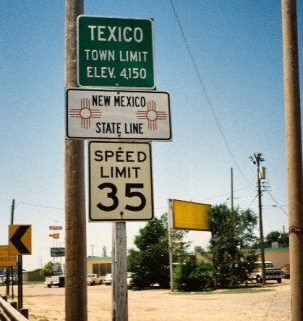Jurisdiction: Does It Stop Here? There? Where?
Jurisdictional issues come up all the time for police officers. Criminals are extremely mobile and, unfortunately for local cops, they simply don’t stay put waiting for officers to come and get them.
Jurisdiction (according to Blacks Law Dictionary) is a geographic area in which a court has power or types of cases it has power to hear. For law enforcement officers, their jurisdictional boundary covers the area where they are sworn to protect and serve.
City officers are sworn (raise their right hands and repeat an oath) to protect and enforce the laws of the city where they’re employed. County officers are sworn to protect and enforce the laws of the counties where they’re employed (which also includes towns and cities located within the county). State officers are sworn to enforce laws in their state. And federal officers are sworn to enforce laws throughout the country.
In most cases, police officers aren’t allowed to make an arrest in any area that’s outside their jurisdiction. In fact, some arrests conducted outside an officer’s jurisdiction are considered illegal.
Unfortunately, bad guys aren’t held to such standards. They’ve even been known to kill somebody in Florida and flee all the way to Washington state. The nerve of those guys. They just don’t abide by the rules.
When bad guys do flee the scene of a crime officers issue warrants for their arrest, and they issue a BOLO (Be On The Lookout). Then, when the crooks are spotted in Washington state, the Northwestern cops can make a legal arrest based on the information—warrants on file/issued—they’ve received from the authorities in Florida.
Are there circumstances when officers are permitted to travel outside their home territory to apprehend a criminal? Yes, there are exceptions to the jurisdictional restrictions for police officers. Such as…
1) During a hot pursuit. Officers can legally pursue a fleeing felon across jurisdictional boundaries as long as they maintain visual contact with the suspect. However, if the officer ever loses sight of the suspect the pursuit is no longer considered fresh and they must terminate the chase (There are always exceptions. Remember, we’re talking about the law).

2) An officer can make a legal arrest outside his jurisdiction if she is responding to a request for assistance from another agency.
3) In some areas, as long as an officer has possession of a legal arrest warrant she can serve it on the suspect anywhere in her state. As always, check local laws and policy.
4) Many jurisdictions have a specified allowance of distance their officers may travel to make an arrest. This provision in place because there are no physical lines drawn on the ground to determine actual city limits. Officers acting in good faith may make an arrest within these provisional boundaries.
For example, the Commonwealth of Virginia.
§ 19.2-250. How far jurisdiction of corporate authorities extends.
A. Notwithstanding any other provision of this article and except as provided in subsection B hereof, the jurisdiction of the corporate authorities of each town or city, in criminal cases involving offenses against the Commonwealth, shall extend within the Commonwealth one mile beyond the corporate limits of such town or city; except that such jurisdiction of the corporate authorities of towns situated in counties having a density of population in excess of 300 inhabitants per square mile, or in counties adjacent to cities having a population of 170,000 or more, shall extend for 300 yards beyond the corporate limits of such town or, in the case of the criminal jurisdiction of an adjacent county, for 300 yards within such town.
B. Notwithstanding any other provision of this article, the jurisdiction of the authorities of Chesterfield County and Henrico County, in criminal cases involving offenses against the Commonwealth, shall extend one mile beyond the limits of such county into the City of Richmond.

However, in Limestone County, Alabama, this law is in effect:
In Limestone, no police jurisdiction of a municipality located wholly or partially within Limestone county shall extend beyond the corporate limits of the municipality. (Amendment 499; Proposed by Act 88-306, submitted at the Nov. 8, 1988, election, and proclaimed ratified Nov. 23, 1988, Proclamation Register No. 6, p. 56).
5) Officers may make a citizens arrest anywhere in the country, just like any other person in the same situation. And that’s exactly what Gomer did when Barney Fife made the illegal U-turn.
6) Interestingly, Ohio state patrol officers have no jurisdiction on private property. Their arrest powers cover only roadway patrol and state property. (Please correct me if I’m wrong, Lt. Swords).
Of course other exceptions to the jurisdictional boundary laws include when a life is in immediate jeopardy, during an act of war or terrorism, etc.
And, I feel compelled to answer the question I see asked almost every single day. Here goes.
NO, the FBI does not ride into town and take over cases from local police departments. They have other things to do—Spies, Terrorists, Hackers, Pedophiles, Mobsters, etc.
Besides, as a rule, the FBI doesn’t work murder cases. Local police departments, sheriffs offices, and state police are more than capable of handling their own cases, including kidnapping/abduction. And they do.







